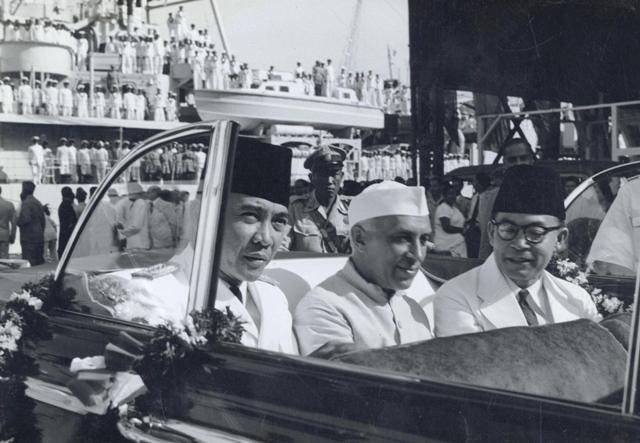Courses
-

Global Decolonization
Decolonization is one of the most significant historical phenomena of the modern world. The end of empires across the nineteenth and twentieth centuries gave way to the international system in which we live today: one constituted of politically independent nation-states. This lecture course explores how decolonization was often a fraught, contested process that shaped not only the international system but also forms of nationhood and statehood, modes of political and social mobilization, and definitions of individual rights. Special attention is paid to the “Global South” as a crucial arena through which local, national, and international relations were forged, and we will further reflect on “decolonization” as the past versus “decolonization” as method. (Image: “Vigorously support the anti-imperialist struggle,” Zhou Ruizhuang, 1970, IISG)
-

Revolutions: Theories and Histories
Revolutions have been responsible for some of the greatest political, social, economic, and cultural changes in human history. But what is a revolution? What sort of change does it induce, and what are its causes? What leads a revolution to fail? This graduate seminar explores the history and meaning of revolutions by taking a theoretical and comparative historical approach. Students explore different sociological theories of revolution before studying a series of case studies in order to develop their own views about how to define and understand revolutions. The course is intended to provide students a framework through which to understand revolutions, as well as to encourage them to apply these frameworks to various historical and contemporary case studies.
-

South Asia in the World
South Asia has a long history of international engagement, whether in the form of transnational anti-colonial mobilization, diplomatic encounters with states and international organizations, or the movement of South Asian peoples and cultures across the world. This upper-level seminar explores South Asia’s significance in global politics, with a historical focus on the twentieth century. “South Asia and the World” examines a number of case studies in which national, regional, and international political impetuses have intersected, placing emphasis on South Asians as key actors who have played leading roles in defining the parameters of nation-state politics and global governance in the era of decolonization and the Cold War. In so doing, it uses South Asia’s history to offer a history of international relations from outside the North Atlantic.
-

The Global Cold War
What was the Cold War, and why has it framed histories of the twentieth century? This lecture course examines the worldwide competition between the United States and Soviet Union, paying particular attention to the ways this conflict played out in different locales. While exploring questions of great power politics, grand strategy, and national security, students also examine the Cold War as a cultural, social, and ideological conflict, one that intersected with issues of race, gender, labor, and anti-colonialism. It encourages students to employ a number of different historiographical approaches to understand the different forms of violence unleashed by the war and its aftermath
-

"War on Tribe" or "War on Terror"? Historicizing Afghanistan & Pakistan
The histories of Afghanistan and Pakistan have been fundamentally interconnected. Each country has had a complicated history of state- and nation-building, while time and again, their relations with each other, and their local populations, have brought international attention and diplomatic efforts to the area. This upper-level seminar engages students to reflect on the nineteenth- and twentieth-century histories of this region and its peoples. It more broadly re-evaluates the methodological and thematic relationships between local, national, regional, and international histories. The course asks the question of why some areas of the world continue to be framed as “ungovernable” in the twenty-first century - or whether the international states system we commonly associate with international relations and history does not fit all regions of the world.